Pretty much everyone agrees that British accents are the sexiest accents on the planet. If you weren't fortunate enough to be born in a location where the accent is used, then it's probably hard for you to fake it. Of course, you can always train your brain and tongue to speak in a different way. It just takes time, patience, and knowledge. If you want to sound as sexy as you feel, here are a few ways to fake a British accent:
1. Pronounce "U" as “Ew”
 It's time to train your mouth to move in a different way than it's used to moving. After all, most words are going to be pronounced differently when you say them in a British accent. For example, when you say certain words, such as "stupid," you should pronounce the "u" like "ew." You should do the same with words like "duty" and "snooty."
It's time to train your mouth to move in a different way than it's used to moving. After all, most words are going to be pronounced differently when you say them in a British accent. For example, when you say certain words, such as "stupid," you should pronounce the "u" like "ew." You should do the same with words like "duty" and "snooty."
2. Always Enunciate "-ing" Words
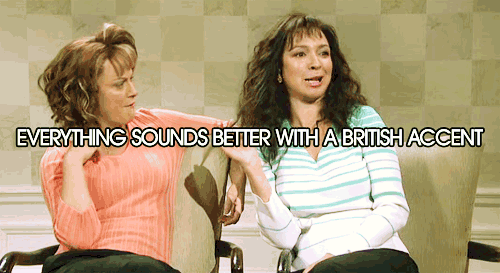 The British always sound so eloquent, because they know how to enunciate when they speak. That's why certain letters should be enunciated more than others when you're trying to copy their accent. For instance, when you're saying an "-ing" word, like swimming or singing, you should make sure to pronounce the G strongly. Never leave that "G" out completely and say "swimmin'."
The British always sound so eloquent, because they know how to enunciate when they speak. That's why certain letters should be enunciated more than others when you're trying to copy their accent. For instance, when you're saying an "-ing" word, like swimming or singing, you should make sure to pronounce the G strongly. Never leave that "G" out completely and say "swimmin'."
3. Don't Always Pronounce the "T"
 When a "t" comes at the end of a word, you should typically enunciate it. However, when it comes in the middle of a word, you might have to skip the sound of the "t" completely. For instance, when you say the word "battle," you don't have to use the sound at all. You remove it completely.
When a "t" comes at the end of a word, you should typically enunciate it. However, when it comes in the middle of a word, you might have to skip the sound of the "t" completely. For instance, when you say the word "battle," you don't have to use the sound at all. You remove it completely.
4. Say the Words like They're Written
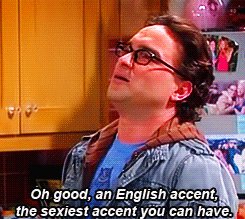 Some people are taught to pronounce words in completely different ways than they're written. However, when you speak in a British accent, most words are pronounced the way that they look. For instance, if you say "been," it's pronounced like the word "bean." When they say "herb," the "H" sound in it is actually pronounced, unlike the way that it is pronounced in other areas.
Some people are taught to pronounce words in completely different ways than they're written. However, when you speak in a British accent, most words are pronounced the way that they look. For instance, if you say "been," it's pronounced like the word "bean." When they say "herb," the "H" sound in it is actually pronounced, unlike the way that it is pronounced in other areas.
5. Use British Slang
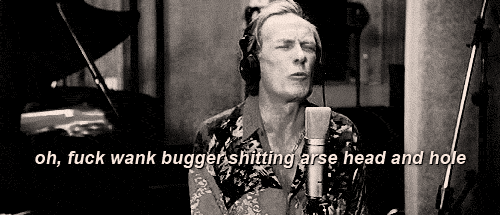 It's not enough to pronounce words like you're British. You also need to use British slang if you want to sound authentic. That means you should stop saying "crush" and start saying "fancy." Drop all of your country's slang and replace it with British slang.
It's not enough to pronounce words like you're British. You also need to use British slang if you want to sound authentic. That means you should stop saying "crush" and start saying "fancy." Drop all of your country's slang and replace it with British slang.
6. Shorten “Ary” Words
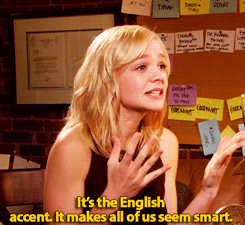 Instead of pronouncing legendary by sounding out each syllable, you should push the "ary" sound together. It's almost as if the "a" is removed from the word and only the "ry" sound is left at the end.
Instead of pronouncing legendary by sounding out each syllable, you should push the "ary" sound together. It's almost as if the "a" is removed from the word and only the "ry" sound is left at the end.
7. Listen to the British Speak
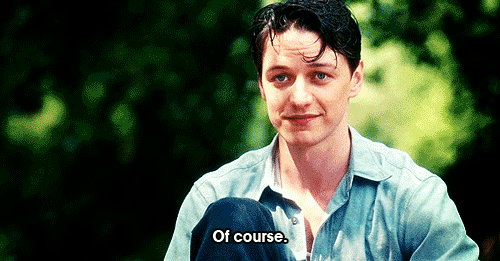 The best way to learn a language is to live in the place where the language is spoken. The same method works when you're trying to learn an accent. Of course, since you probably pick up and leave for London, you can settle for watching British television shows, movies, and YouTubers. The more you listen to their voices, the easier it'll be to mimic them.
The best way to learn a language is to live in the place where the language is spoken. The same method works when you're trying to learn an accent. Of course, since you probably pick up and leave for London, you can settle for watching British television shows, movies, and YouTubers. The more you listen to their voices, the easier it'll be to mimic them.
Not all British women speak with the same type of accent, but these tips should help you get the gist of how most people assume that they sound. Are British accents your favorite type of accents, or is there another kind that you prefer?
Frequently Asked Questions
- Can anyone learn to fake a British accent?
- Yes, most people can learn to fake a British accent with practice and by listening to native speakers.
- What are some key features of a British accent?
- Key features include pronouncing 't' clearly in the middle of words, using a softer 'r,' and changing the way you pronounce vowels, like 'a' in 'bath'.
- How can I practice faking a British accent?
- You can practice by listening to British speakers in movies or on TV, repeating phrases, and recording yourself to hear how you sound.
- Is it offensive to fake a British accent?
- It can be seen as offensive or disrespectful if it's done to make fun of people. Always use your fake accent in a respectful way.
- Does faking a British accent require a lot of time?
- Yes, mastering any accent, including a British one, takes time and consistent practice to sound convincing.